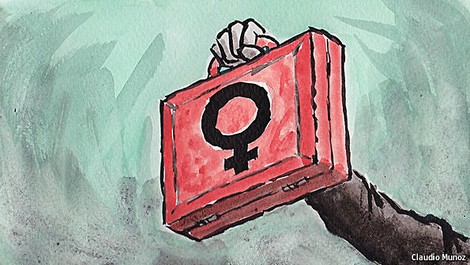Your podcast discovery platform
Curious minds select the most fascinating podcasts from around the world. Discover hand-piqd audio recommendations on your favorite topics.

piqer for: Globalization and politics
Brussels-based communications specialist, originally from Barcelona with a journalistic background. Currently working as Communications Adviser (social media, content editor & press) for a European political party. Piqs mostly about European and EU politics and the interlink between media and politics.
Why Governments Should Understand That Gender Equality Makes Economic Sense
In recent years, politicians across the globe have declared they understand the value of women in society. Several governments have put forward measures aiming to end discrimination towards women, such as creating ministries devoted to policies for women or passing laws giving women equal opportunities to men. However, most of these proposals have kept on placing women’s issues on the periphery of policy instead of bringing them to the centre of it: economy.
Here is where a new technique that some policymakers have suggested comes forward: gender budgeting. It not only promises to make a significant difference in advancing real gender equality, but it also brings a more ethical lesson: “the way to a government’s heart is through its pocket.”
Simply put, the aim of gender budgeting is to assess how policies affect women and men differently – an evaluation carried out right from the heart of a government, which is the Ministry of Finance. Given the importance that administrations currently give to the managing of their finances, it would be a significant step for gender balance if judgement about what sort of policies are beneficial for women would come within the economy ministry. To make it clear, an example of this implementation of gender budgeting would be the case of Austria, which recently recognised that numbers show lowering income tax on second earners encourages women to join the labour force, while consequently boosting growth and tax revenues.
Redesigning a country’s budgeting process is time consuming and requires practice. That is why the implementation of gender budgeting wouldn’t be successful from one day to another. However, as the article concludes: “doing something demands though choices".
